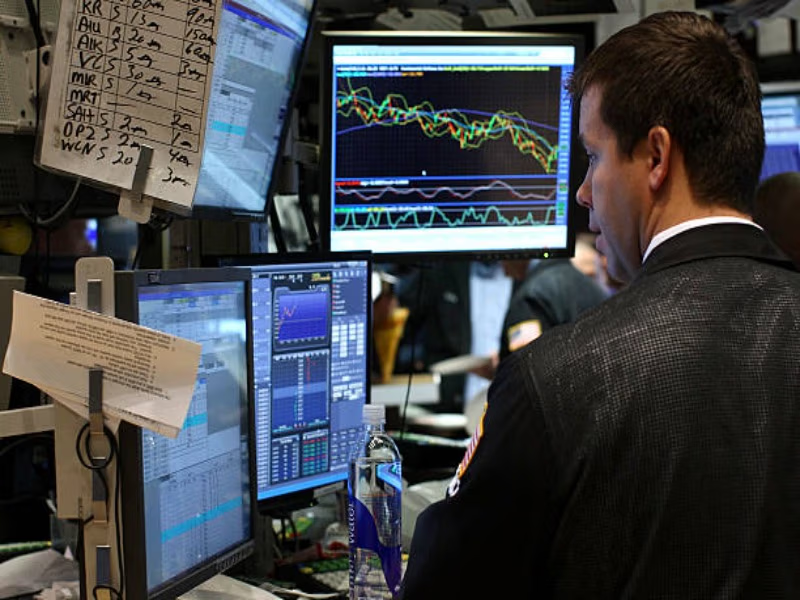Stock futures were a bit under pressure on Wednesday night following an ongoing rotation in the markets, which drove the Dow Jones Industrial Average to new highs.
The futures associated with the Dow Jones Industrial Average dropped by 26 points or almost 0.1 percent. S&P futures fell by 0.2 percent, and Nasdaq 100 futures fell by about 0.3 percent.
There was another divergence in the stock market on Wednesday, with other market pockets doing better than technology stocks, with value-oriented sectors like health care doing well.
The rotation has relieved some investors who want to see a wider outing of the market, but it may also be an indication of increasing reluctance to take risk-on investments.
The Dow on Wednesday reached its first record close of above 48,000, which put the index of 30 stocks in its best weekly performance since the end of June.
The S&P 500 ended slightly above the flatline in order to record four days of consecutive gains, meanwhile, and the Nasdaq Composite, which is dominated by the tech sector, ended the day in the red.
Chief Investment Officer of Comerica Wealth Management, Eric Teal, said that “We have rebounded in dramatic fashion from the April lows. Most importantly, the market is broadening out beyond just growth and technology, including industrials, financials, and healthcare. Small-cap stocks are also participating in the rally as lower short-term interest rates have been a harbinger for small-cap outperformance.”
After six weeks, investors had been hopeful that the U.S. government shutdown, which had become the longest in history, would come to an end.
A short-term funding bill passed the House of Representatives, with a vote of 222-209, ending the ongoing impasse at least until the end of January. Meanwhile, President Donald Trump has indicated that he would sign it.
The long shutdown led investors to trade in the dark without major economic releases, including the October jobs report and inflation data, and added to the recent choppiness in the market.
White House Press Secretary Karoline Leavitt informed reporters on Wednesday that such reports might never be published, and the economy might be down 2 percentage points in the fourth quarter as a result of the shutdown.
However, most economists project only a small effect on U.S. GDP.






